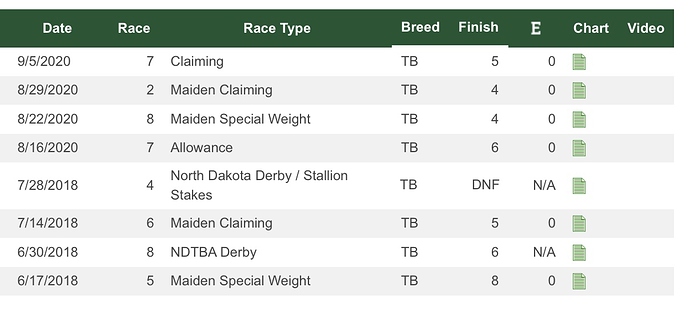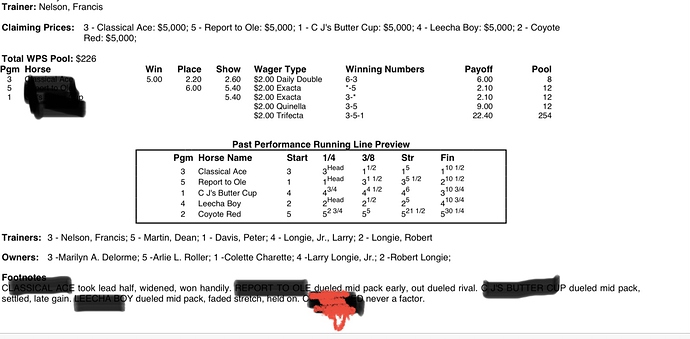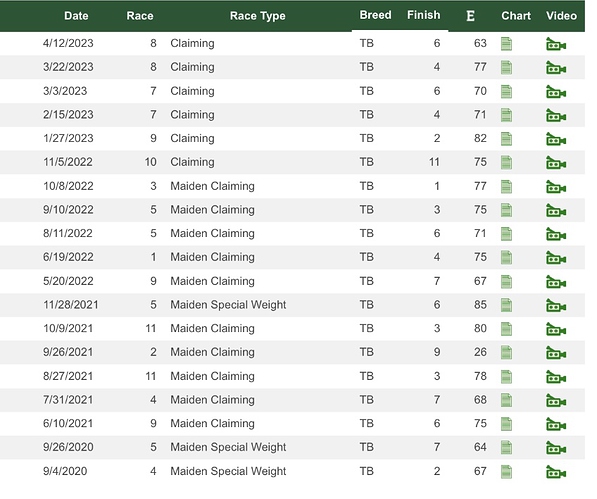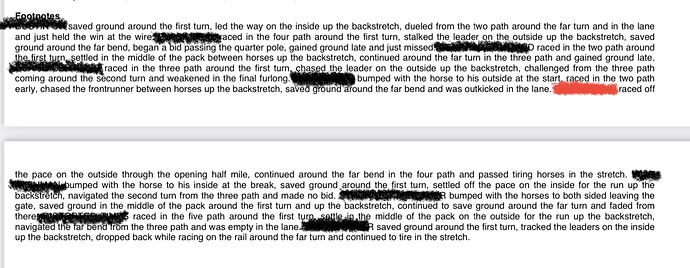I’m starting to casually look for a new horse, mostly window shopping at this point. My budget is solidly 4 figures, because I just don’t want to spend more. I could, but I don’t want to. Since I’m wanting to do H/J and am tall (aka a chunky 16H is my MINIMUM), that puts me firmly in OTTB land. My current horse is one, and I’ve ridden plenty of them - we get along great and I love the work ethic.
I see lots of ads with “low starts” and “never raced (but trained)” as positives, but my thinking is the higher mileage ones have a proven durability that might translate to a low jumping career. Then again, that usually comes with soreness and joint changes, so maybe it’s an even trade?
I’d love to hear opinions and experiences of the low start horses vs higher mileage for a light 1.0ish and under career. Definitely not showing every month, mostly weekend outings and lessons.
I’d also be interested in learning to read between the lines of race charts - a DNF, 2 years off, and an owner change as a red flag, or just a sign of a horse really hating to run? Versus a horse hitting the low-middle of the pack almost every time for two straight years before retiring to a rehoming program? No horse is perfect, and I firmly believe in picking ones with issues you can deal with (vs ones you can’t). But understanding a chart when faced with a race-fit 3YO and a jog video might be mighty helpful.








 :
: ).
). So if I were shopping, I would look for the the breeding I like, then look to the race record for more information, or anything suspicious/does not align with what you have been told. I would rather buy a horse with breeding I like regardless of # of starts than a horse with breeding I don’t know much about who has a very clean record.
So if I were shopping, I would look for the the breeding I like, then look to the race record for more information, or anything suspicious/does not align with what you have been told. I would rather buy a horse with breeding I like regardless of # of starts than a horse with breeding I don’t know much about who has a very clean record.